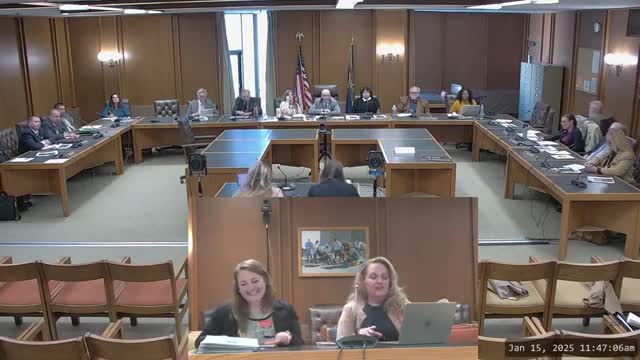Coalition urges lawmakers to rely on crisis centers, SANE nurses and coordinated response for domestic and sexual violence and trafficking
Get AI-powered insights, summaries, and transcripts
Subscribe
Summary
The New Hampshire Coalition Against Domestic and Sexual Violence briefed the committee on statewide crisis centers, emergency shelters, the SANE nurse program, and the state human trafficking collaborative; coalition staff urged heavy vetting of bills for implementation effects and offered to serve as a resource.
Representatives of the New Hampshire Coalition Against Domestic and Sexual Violence told the Criminal Justice and Public Safety Committee that the coalition’s network of 12 member programs operates crisis centers, emergency shelters and a statewide human trafficking collaborative and can assist the legislature in vetting policies for implementation impacts.
Amanda Grady Sexton, the coalition’s director of public affairs, and Pamela Kielig, the coalition’s public policy specialist, described their member programs’ services: confidential advocacy, emergency shelter (about 11 shelters providing roughly 400 shelter stays annually), hospital accompaniment and sexual assault nurse examiner (SANE) services, legal accompaniment, safety planning, housing and economic assistance and prevention education. The coalition said its members serve about 15,000 victims annually across the state and provide victim advocacy and community referrals in urban and rural communities.
Kielig asked the committee to consider implementation implications when drafting policy, noting the coalition vets bills with partner stakeholders (health care, law enforcement, legal services, and survivors) to ensure laws work in practice for victims and service providers. The coalition highlighted the statewide human trafficking collaborative that coordinates investigators, prosecutors and victim service providers and urged legislators to consult that group on trafficking responses.
Speakers offered to supply materials the committee can use (a policy brief on human trafficking and a brief on the lifetime cost of trauma) and said coalition staff will be available daily during the session to answer questions or provide technical assistance.
No votes or formal actions were recorded; coalition staff volunteered to provide follow‑up information and to serve as implementation resources for legislators.
